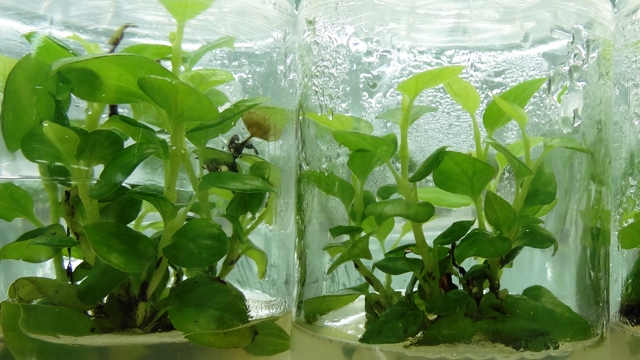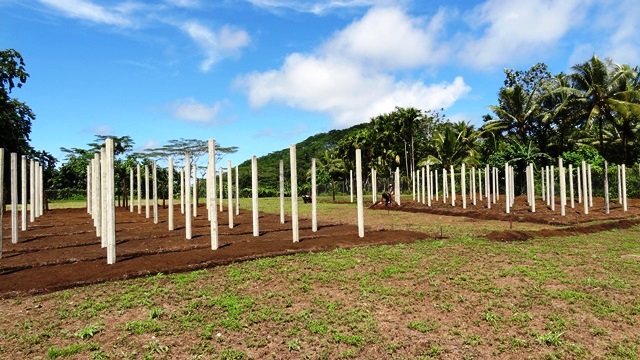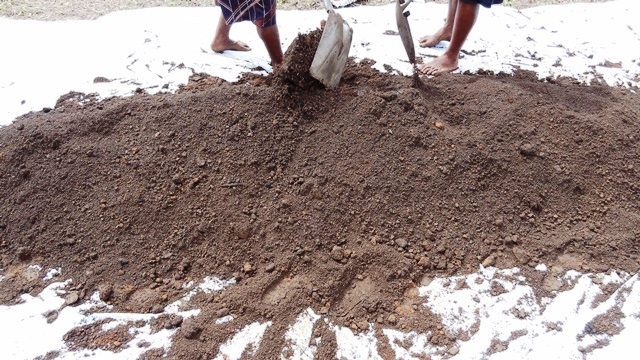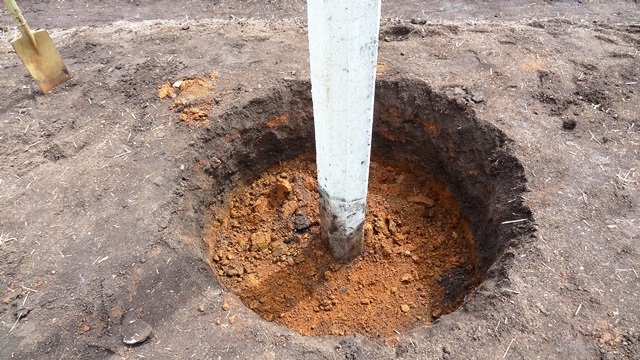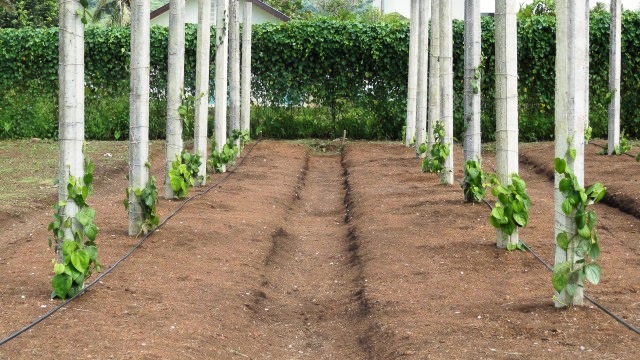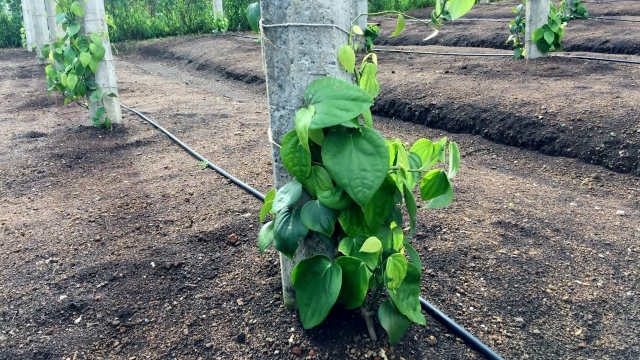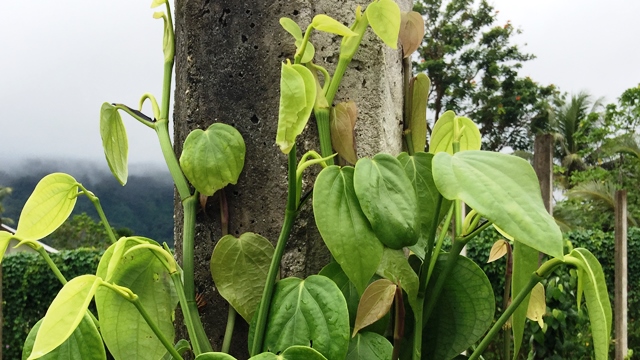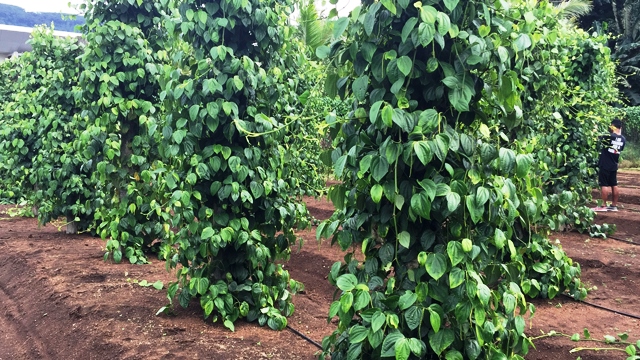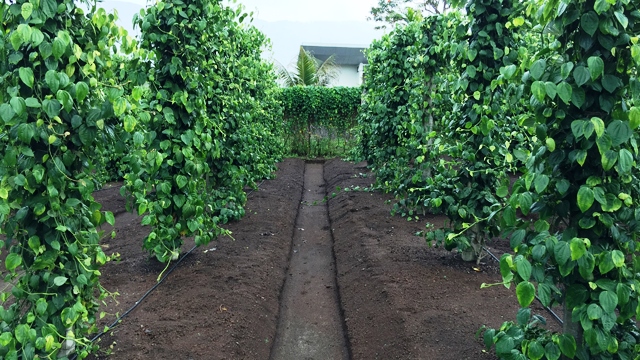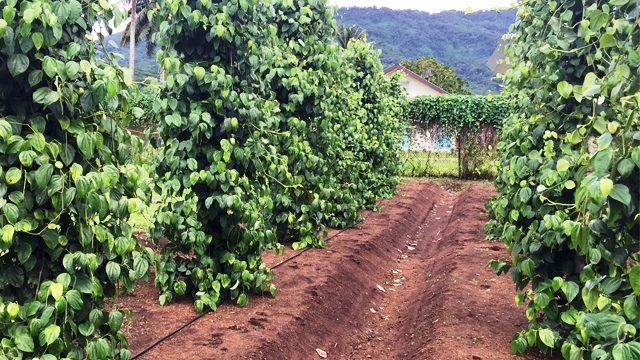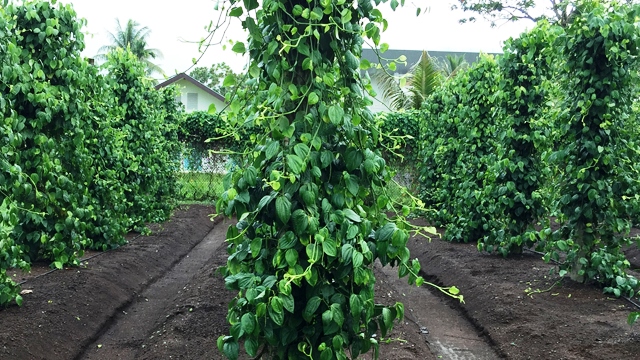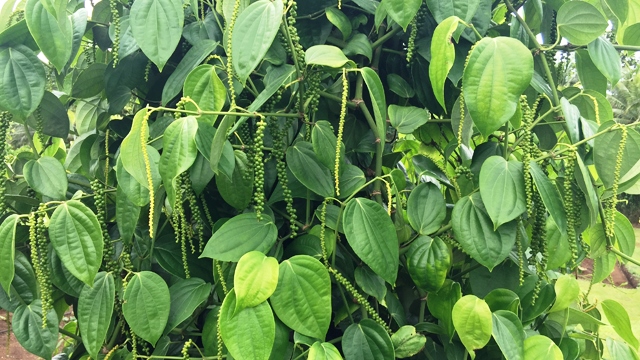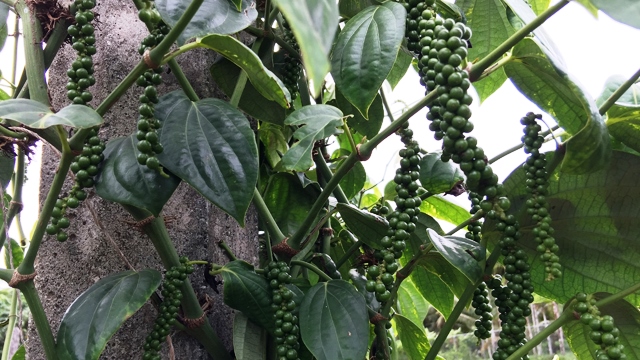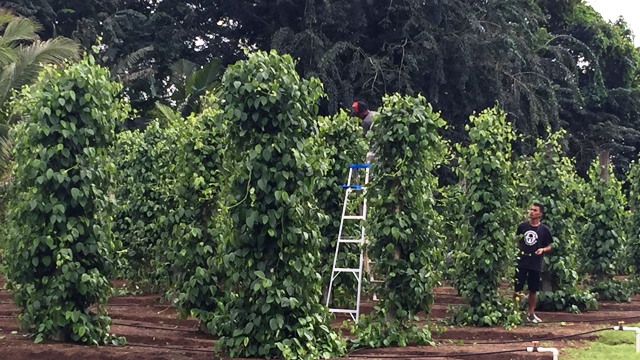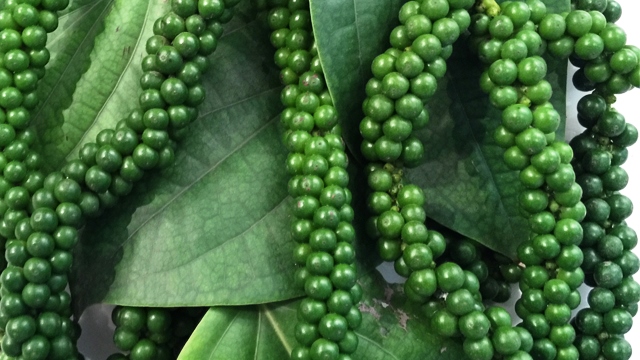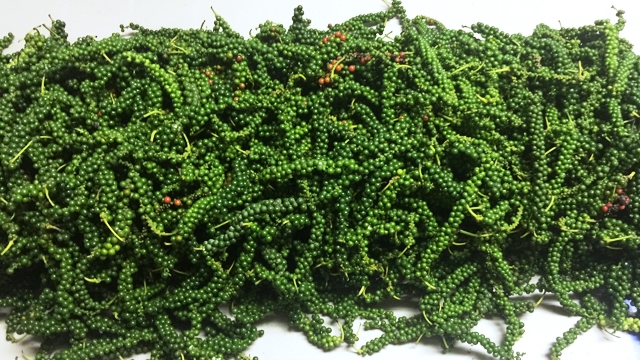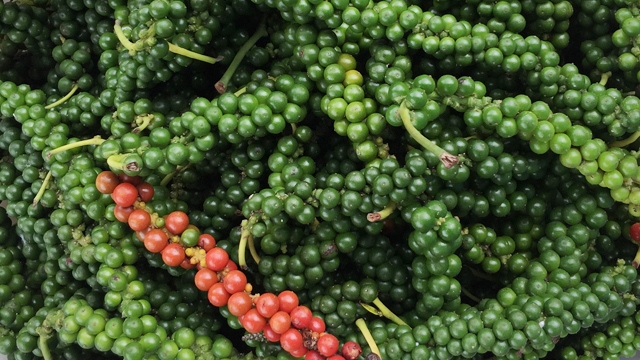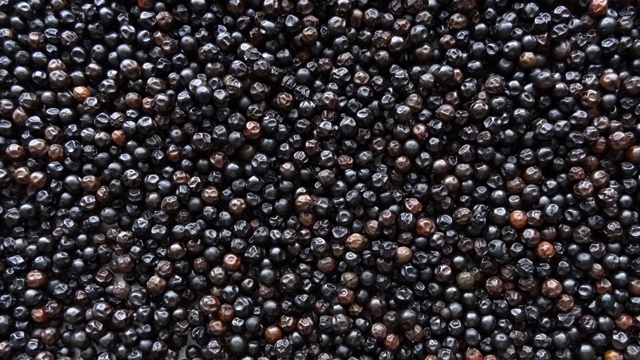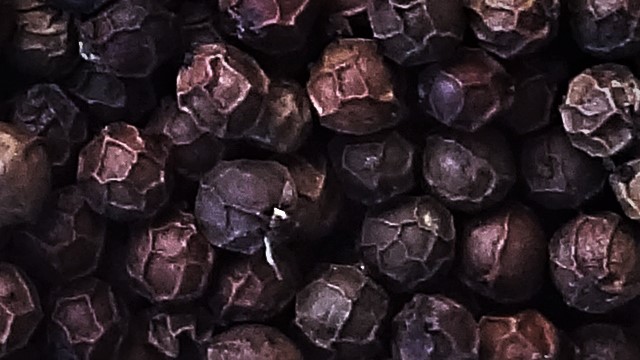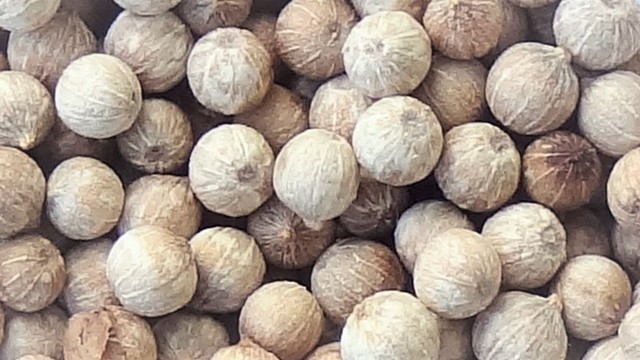KOSRAE, FSM. Dr. Virendra M. Verma, Researcher and Extension Specialist, Kosrae Agricultural Experiment Station.
Black pepper (Piper nigrum L.) a flowering vine of Piperaceae family, is valued for its dried berries called peppercorns, which are used as a spice and for medicinal purposes. Native to the humid jungles of the Malabar Coast of Southwestern India, the plant is cultivated in the tropics worldwide. In Micronesia, it is gaining commercial importance as an important cash crop because of premium price. Traditionally, the trunks of two cultivars of large native tree fern (Cyathea nigricans) are used as supports for black pepper cultivation. However, short life-span of these tree ferns along with the rapid decline in their population due to increasing use of tree trunks for construction, is becoming a limitation for commercial black pepper cultivation in the region.
Therefore, to promote sustainable black pepper cultivation in the region, an integrated research, outreach and education project entitled, ‘Black pepper micropropagation for elite seedling production: Comparison of local practices and commercial cultivation methods’ was initiated by the Project Director Dr. Virendra M. Verma. This project is approved and funded by the United States Department of Agriculture, National Institute of Food and Agriculture (USDA-NIFA) for Micronesia. This project is of great significance as it is specifically designed to develop black pepper micropropagation and nursery management systems to produce and ensure the year-round availability of identical, disease-free and high-quality planting material. The objectives of the project include: finding alternative supports to overcome the limitations caused due to shortage of tree ferns, determining appropriate fertilizer type and doses, along with the development and publication of a commercial black pepper cultivation guide appropriate for Micronesia.
This project is first of its kind not only in the Micronesian region but also in the Pacific region because it is integrating and employing multiple latest tools and technologies such as plant biotechnology, horticulture, microbiology, plant physiology and plant pathology for sustainable, climate-smart and organic commercial cultivation of black pepper. The project is utilizing plant biotechnological techniques such as in vitro cloning for uniform black pepper plantlet production, greenhouse acclimatization of cloned black pepper plantlets for elite, disease-free seedling production, automatic fertilizer injectors for uniform fertilizer application, and organic fertilizers to provide essential nutrients and maintain beneficial soil microorganisms along with appropriate site-specific and climate-smart horticultural, plant physiological and integrated pest management practices. The project activities also include educating local farmers in site-specific sustainable agricultural practices, and providing appropriate recommendations and training for sustainable, climate-smart and organic commercial black pepper production in the region.
Successful execution of project objectives has resulted in the development of a highly efficient and reliable in vitro cloning method for multiplication and production of elite, uniform and diseases-free black pepper plantlets, and acclimatization of hundreds of cloned plantlets into uniform and diseases-free seedlings of a locally preferred and commercially important black pepper cultivar Piper nigrum cv. Srilanka through appropriate nursery management systems.
Considering the extremely limited availability of traditional tree fern supports and their very short lifespan, non-living supports such as reinforced cement-concrete standards have been specifically designed and constructed at pilot site to support the vines of fully acclimatized black pepper plants in the field. In addition, raised beds, which ensure perfect water drainage, organic fertilizers for soil amendment along with organic mulching, and automatic fertilizer injectors which provide perfect nutrition, were used for the establishment and maintenance of black pepper plantations.
Research trials for commercial black pepper cultivation have been designed, and implemented at pilot site, and data collection is in progress for analysis. The outcomes of this analysis would be ultimately used for the development and publication of a commercial cultivation guide to specifically suit the needs of local farmers. The project is also conducting comparative research study of local black pepper cultivation practices and sustainable commercial cultivation methods. Pilot site is being developed and would be used as demonstration site to carry out research, outreach and education activities of the project to encourage and promote sustainable commercial black pepper production among local farmers in the region. Recommendations for sustainable black pepper production would be provided through training workshops, hands-on trainings, farm visits, and field days.
The overall aim of the project is to develop sustainable black pepper production systems in Micronesia by providing elite and disease-free seedlings, appropriate recommendations for commercial black pepper production such as sustainable, organic and climate-smart technology and developing skills and improving the agricultural knowledge of local farmers. Adoption of new practices such as micropropagation of black pepper for improved and enhanced productivity will ultimately help in reviving local black pepper industry. Furthermore, this project would provide opportunities for income generation and profitable self-employment to the participating farmers. In addition, the pilot site is serving as an excellent cultivation model to encourage other farmers and rural communities in successfully adopting the sustainable, climate-smart and organic commercial black pepper production practices. Enjoy these photos of this project!
